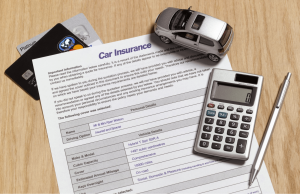Title Loan
If you’ve been searching around for a fast and easy way to get instant cash without having to go through a laborious loan application process, you’re about to hear good news. Title loans are popular for the exact selling point you’re searching for – they don’t consider credit scores while making the decision on your loan application!
For the most part, a title loan is sought out by most people for cars, which is why this type of loan is sometimes referred to as a “car title loan”. So, what matters instead of credit scores in the case of title loans? Let’s find out.
What Is a Title Loan?
Based on our observations, Title loans are ones that require you to have an asset to provide as collateral to the lender before taking out the money you need. The main reason behind their popularity is that your credit history doesn’t affect whether you’re eligible for the online loan or not – in other words, your credit score or rating doesn’t matter.
Closely following that point, the second significant benefit of title loans is that these loans get approved rather quickly due to the flexible application requirements, making them one of the quickest solutions to tight financial situations. Not to mention, their application processes are among the easiest to go through.
What Is a Car Title Loan?

The terms title loan and car title overnight loan (or auto-title loans) are used interchangeably, and that’s because car title loans are the most sought out and common type of title loans. In this case, you use your car or vehicle as the collateral (asset) to guarantee the lender that you’ll pay back the loan amount on time without defaulting.
Through our practical knowledge, Car title secured loans are short-term in nature, and if you as a borrower fail to repay the loan amount, the lender acquires the ownership of the car and has the full right to sell it to restore the principal amount.
It’s also worth mentioning that despite being secured small loans, car title loans still involve subprime lending, which is lending to borrowers with relatively low credit scores, which makes their interest rates rather high since the risk of default is high.
How a Title Loan Works

To be eligible for a title loan, you first need to have full ownership of a car. That means the car itself has to be entirely paid off with no claims by creditors over it. In some cases, some additional measures may be required of you, like installing a GPS tracker in the car to ensure that the lender can repossess the car if needed.
You then sign the car’s title to an auto-loan title company or the lender of your choice, which will lend you up to around 25% of the car’s total value, and sometimes 50%. During the loan duration, the lender will keep the car’s title as collateral, but you’ll still be free to use it like usual.
After putting it to the test, most car title loans are worth $1000 in value, but that doesn’t mean they can’t be higher. Plus, their duration typically ranges between 15-30 days, and in some cases, they can be longer if needed. Unlike most loans, you can repay the loan amount in a single payment or on multi-year instalment plans without getting charged any fees if you pay in full early.
If you default, of course, the lender will immediately repossess the car, but not all lenders choose to do that. In fact, many of them choose to give borrowers the option of making interest-only payments for a couple of months as a means to postpone the initial loan amount until you’re able to repay it.
While that sounds convenient and flexible, the rolling over does come with its own setbacks, which brings us to our next point.
The Downside of Car Title Loans

Until now, it all probably all sounds like music to your ears. After all, what would one wish for other than a quick loan that doesn’t factor in credit scores? That’s especially so if you’re someone with bad credit or you’re simply in a financially tight situation and need the cash fast.
However, that shouldn’t distract you from paying attention to a critical point, which is that excessively high costs come with the title loan package, and there’s no way around them. While they vary from one lender to another, the bulk of the costs is usually the annual percentage rate (APR), which can go up to 300% (in 99% of the cases, the APR exceeds 100%).
That could lead to an endless cycle of financial commitments; you could potentially find yourself continuously paying for the APR but never actually for the loan’s principal. So, you have to be very wary of every single charge you’ll need to pay to factor it in with your repayment schedule.
Example:
Suppose you’re about to take out a car title loan of $1,000 that you’ll pay within a month, and it has an APR of 300%, which is a monthly fixed rate of 25%. That way, you’ll have to pay a total amount of $1,250. While that can be fine for some people, it isn’t for others who don’t need additional financial hardship above their existing situation.
Not to mention, not all lenders offer fixed interest rates with fixed monthly instalments; sometimes, you’ll be confronted with compound interest, which can amount to much higher than the example we’ve referred to. That’s plus, of course, any other fees.
How to Apply

If you’re all set on applying for a title loan, the application process is the easiest part – it’s the decision that’s hard. Car title loan applications can be completed both online and physically. Most lenders have websites, like Perfect Payday, while others have hybrid models allowing you to apply wherever you want.
Whichever you choose, though, you’ll need to have some documents on hand as evidence, including:
- Proof of title to the car
- Car insurance
- Driver’s license
- Any car-related paperwork
As we’ve briefly discussed, you may also be requested to install a GPS tracker onto the car. In some extreme cases, lenders may also ask you to install a device that can disable the car’s ignition in case they need to repossess it at one point in time if you default.
The approval or rejection decision depends on the micro loan amount you need, your car’s value, and your ability to repay the amount. Naturally, the lender won’t want to put you in a tight situation, so they’ll only approve an amount that makes the payments manageable.
Whether it’s rejected or approved, you’ll hear back in less than a day in most cases, mainly if you apply during business hours. And if you respond with your approval, you can get the loan on the very same day.
Am I Eligible to Apply?
To be eligible to apply, you first need to have a car in your ownership and have all the necessary paperwork for it. But other than that, there are the basic eligibility criteria:
- You need to be at least 18 years old
- You need to have a personal bank account
- You need to have been receiving a sustainable income for the past 90 days
- You need to be an Australian citizen or have permanent residency
- You need to have an active mobile number and email address
Can You Get A Title Loan On A Financed Car?
You can get a title loan on a financed car, but it depends on the lender and your car’s equity. Car title loans and auto loans don’t take your credit score into consideration since they’re secured loans. Getting a title loan on a financed vehicle can be a bit difficult, but choosing the right lender for auto title loans will make all the difference.
With a car title loan, you can make payments monthly based on the APR (Annual Percentage Rate).
What Happens During the Repossession Process?

Suppose you’re wondering what happens in the unfortunate case that you default on the loan or repeatedly missed your repayments without getting back to the lender. In that case, you’ll receive a written notice of the car’s repossession, and it’ll include:
- The estimated value of the car
- The cost of the repossession
- Any additional costs that you’ll need to pay that the repossession won’t cover (if applicable)
- A statement of your rights and obligations according to the law
From the day you receive the written notice, you’ll have 21-30 days to pay the overdue amount. If you do, your car or vehicle will return back to you, or it won’t be repossessed, but if not, it, unfortunately, will be sold if a resolution isn’t reached.
In Conclusion
Title loans can be a convenient solution when you’re going through financial difficulties and need the money right away. It’s not every day that we stumble upon a loan type that doesn’t judge us for our past credit history.
However, there are some special considerations to factor in when deciding whether to take out a title loan or not, the most important being the tremendously high interest rates. Many people have unfortunately said the loan had left them worse off than they were before it, and that’s all because of the additional fees associated with quick loans.
So, if you can, please do consider options like credit cards, borrowing from friends or family, or similar. Moreover, if you can negotiate your current debt, do that. Let taking on further debt be your last resort, and if it is, make sure you plan how you’ll make the repayments very thoroughly.